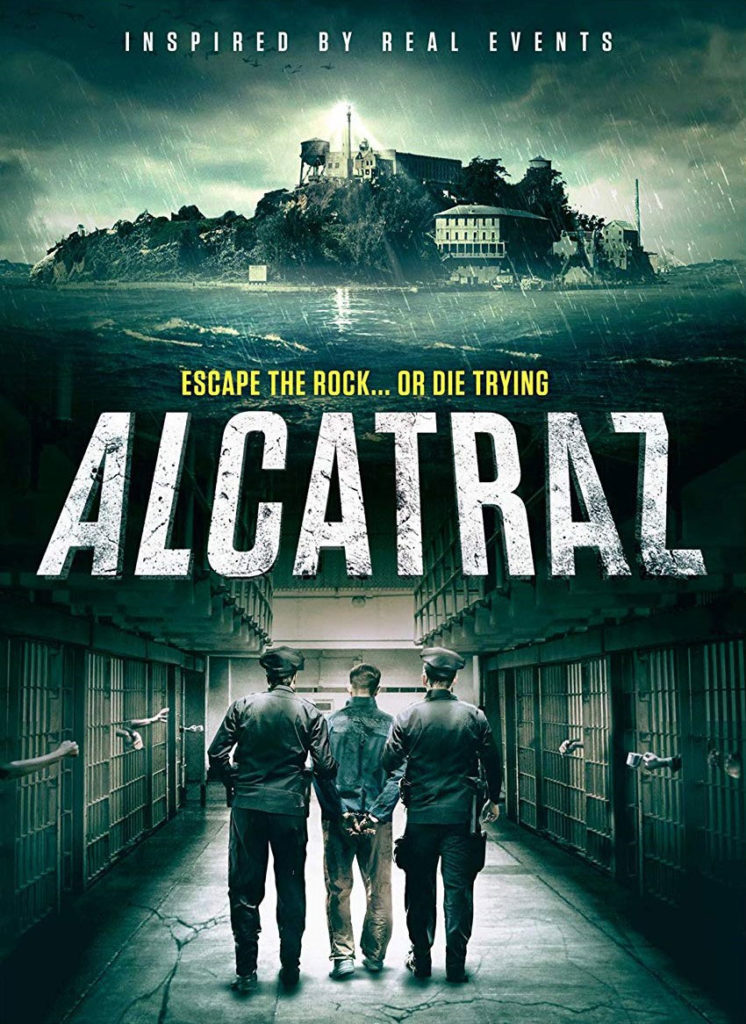 My favorite bad movies are ones from outsider filmmakers who pour their hearts and souls into making their films. They may not know what they’re doing, and they usually have resources to match, yet they persevere, often through years of adversity, to get their projects to audiences.
My favorite bad movies are ones from outsider filmmakers who pour their hearts and souls into making their films. They may not know what they’re doing, and they usually have resources to match, yet they persevere, often through years of adversity, to get their projects to audiences.
My least favorite bad movies are treated as little more than commodities — something produced to get to market as quickly as possible, with little use for the skills and talents of those involved. In fact, talent is a burden, as it would cost the production more money.
Today’s film is from one of the most prolific shitty movie filmmakers working today, and it falls very much into the category of commodity filmmaking.
From writer/director/producer Andrew Jones comes Alcatraz, a fictional retelling of the so-called Battle of Alcatraz, wherein a small group of inmates attempted to escape the legendary prison in 1946 by taking guards hostage. There’s no reason to go further into the real-life details, as the movie didn’t use them.
The film announces its shitty bona fides before the opening credits, with some aerial footage of the prison and the city of San Francisco. Jones and company managed to find some stock footage of the city around the time in which the film takes place, showing period vehicles and a yet-to-be risen skyline, then immediately follow that up with footage of the prison. I can forgive showing the prison in its current state of arrested decay, but then the camera pans and there is the city, in all its modern-day glory, dominated by the Transamerica Pyramid, opened in 1972. This footage is used more than once. That is some shitty filmmaking.
The hero of the film is Clarence (Derek Nelson, an Andrew Jones film veteran). He’s the new fish of prison film cliché, even though Alcatraz is not his first stop in the criminal justice system. He beats up another prisoner in the mess hall (potential viewers should get used to seeing this set), and is recruited into a gang led by the dastardly Joe (Patrick O’Donnell, another Jones vet. In fact, all the main players work with Jones on a regular basis. I appreciate that kind of loyalty.).
Joe and his gang are planning an escape, which makes it curious as to why they would invite this new guy into the fold. There aren’t any convincing reasons provided, either. That’s typical of this screenplay.
The other members of the gang are Bernie (Gareth Lawrence), an up hollow hillbilly from Kentucky, whom Lawrence plays as somewhat bookish and meek; and Sam (Mark Homer), who is the muscle of the group.
Jones then spends the middle of the film hitting all the prison flick notes — shivs and snitches, etc. And then it’s time to seize a couple guards and escape.
Only we never get to see how the guards were captured. One moment there’s everyday prison stuff going on, and the next moment Joe and company are beating up guards in a little room. Perhaps Jones didn’t feel it necessary to show how the gang captured the guards. Maybe the hard drive for the camera failed and the footage was lost. Or maybe this is just a shitty movie, and if one has made it this far, one has no reason to complain.
Things turn out as one would expect, leading to a lengthy epilogue that pads the running time.
Alcatraz is just a plain, very bad movie. Jones was working with a budget well down into the six figures, but magic has been made for far less. Magic wasn’t the goal of this production, however. The cheapness was the point.
Interior scenes weren’t filmed at Alcatraz. Rather, a couple of rooms at police museums in the UK substituted. It was grimy and old enough. Jones’s direction was so claustrophobic that the movie could have been filmed in a broom closet and it wouldn’t have changed much. There was just enough atmosphere for audiences to understand the movie took place in a prison, and nothing more.
The acting talent was a bargain, however. There aren’t any stars in the cast, but the main players were better than the final product. One can see why Jones continues to work with them.
Alcatraz is an example of the worst kind of filmmaking. The production set its expectations low, and never tried to exceed them. Some simple things could have been done to raise the quality of the film, but no one seemed to want to do so. It goes back to that initial shot of the present skyline of San Francisco in a movie that takes place in 1946 (and a whole pile of other anachronisms I didn’t bother to mention). The filmmakers didn’t care about believability and authenticity, and they probably didn’t believe any viewers would care, either. That’s what they think of us.
Alcatraz falls into the lower third of the Watchability Index — the leper colony of film — displacing Halloween 5 at #333. Stay away.
